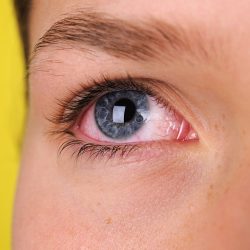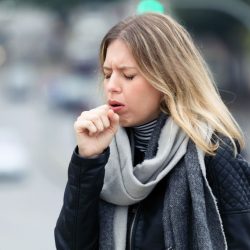Fever is characterized by a marked increase in body temperature. It manifests itself in all warm-blooded living beings and in humans, this rise can go beyond 40 ° C. As the normal temperature of the human body oscillates between 36.5 ° C and 37.5 ° C, it is considered to be in the presence of a fever from 38 ° C.
Checking this temperature can be done using a thermometer from various parts of the body, including the rectum, armpits and mouth. Rectal temperature is most reliable for children under the age of 5. Beyond this age, it is necessary to measure the temperature at the level of the mouth. While fever is common in infants and toddlers, also in adults. In fact, fever is an immune reaction of the human body.
Faced with the attack of various bacteria and other parasites that release chemicals that endanger the human body, the white blood cells in charge of the body’s defense will react by releasing substances called pyrogens. The increase in body temperature then results from these pyrogens. This reaction inhibits or outright eliminates the actions of microbes and parasites that cannot survive at high temperature. Sometimes, this increase in temperature occurs during intense efforts during a period of high heat, or overexposure to the sun or a hormonal disorder. But it can also be the manifestation of the effects of certain drugs.
The 4 different types of fevers:
1- Fever with high temperature:
The main symptom of a fever is a rise in temperature above 38 ° C. But depending on the case, other symptoms often add to this temperature change.
2- Fever with sudden high temperature:
Sometimes fever can present as a sudden rise in temperature after feeling very thirsty with great anxiety and dry skin.
3- Fever with average temperature:
The fever can also be manifested by a succession of pallor and redness, with a temperature of around 38.5 ° C. Another type of symptom is severe fatigue accompanied by a dry mouth and a feeling of thirst and heavy chills.
4- Fever and stiffness:
Sometimes aches, heavy sweating and tremors occur in a feverish individual. In order to keep the body at a high temperature, a region of the brain called the hypothalamus causes muscles to contract, tremors come from this mechanism. Then, so that the temperature can return to normal, heat will be released through perspiration. In very rare cases, a viscous sweat and an unpleasant odor may also emerge from the patient’s body. For some children, especially babies under 3 months of age, a fever may be accompanied by seizures.
The 4 Different Homeopathic Remedies for fever:
Aconite 9CH a dose to be repeated 3 hours then 6 hours later for all fevers of sudden onset, very high from the start (40 °), with strong thirst but without sweating.
Belladonna 9CH 5 granules every two hours in case of sudden onset fever, very high from the outset (39-40 ° C) with heavy sweating and intense thirst; the face is scarlet, the eyes are brilliant, the pupils dilated, the gaze fixed, as if frozen. Sleep is restless, peopled with nightmares.
Gelsemium 7CH 2 granules 3 times a day if the fever does not cause thirst but leaves the subject as dazed, dazed and drowsy.
Ferrum phosphoricum 9CH 5 granules 4 times a day for “mild fever” (38.5 ° C), settling slowly, with a dry cough. The face is pale, the hands sweaty, the thirst moderate. In a child, this remedy can cut short the onset of otitis.
Sometimes it is essential to consult a doctor to find the disease in question:
In a child, a fever that lasts more than 2 days and rises above 39 ° C always requires medical advice. If the temperature rises above 40 ° C, the patient should be examined by a doctor, regardless of age.
As we have already pointed out, the goal of the homeopathic doctor is to treat the patient and not his fever in particular. Fever is only a symptom, and to isolate it from the rest of the clinical picture is to decapitate a defense process, a reaction of the immune system. The adapted homeopathic medicine accompanies, channels, and optimizes this process. It should be prescribed at the first symptoms, as soon as possible. Of course, the drug must relieve quickly, and be accompanied by hygieno-dietetic measures.
When a fever is very resistant and does not progress despite the various treatments that have been undertaken, the patient should always see a doctor even if none of the above symptoms appear.>






